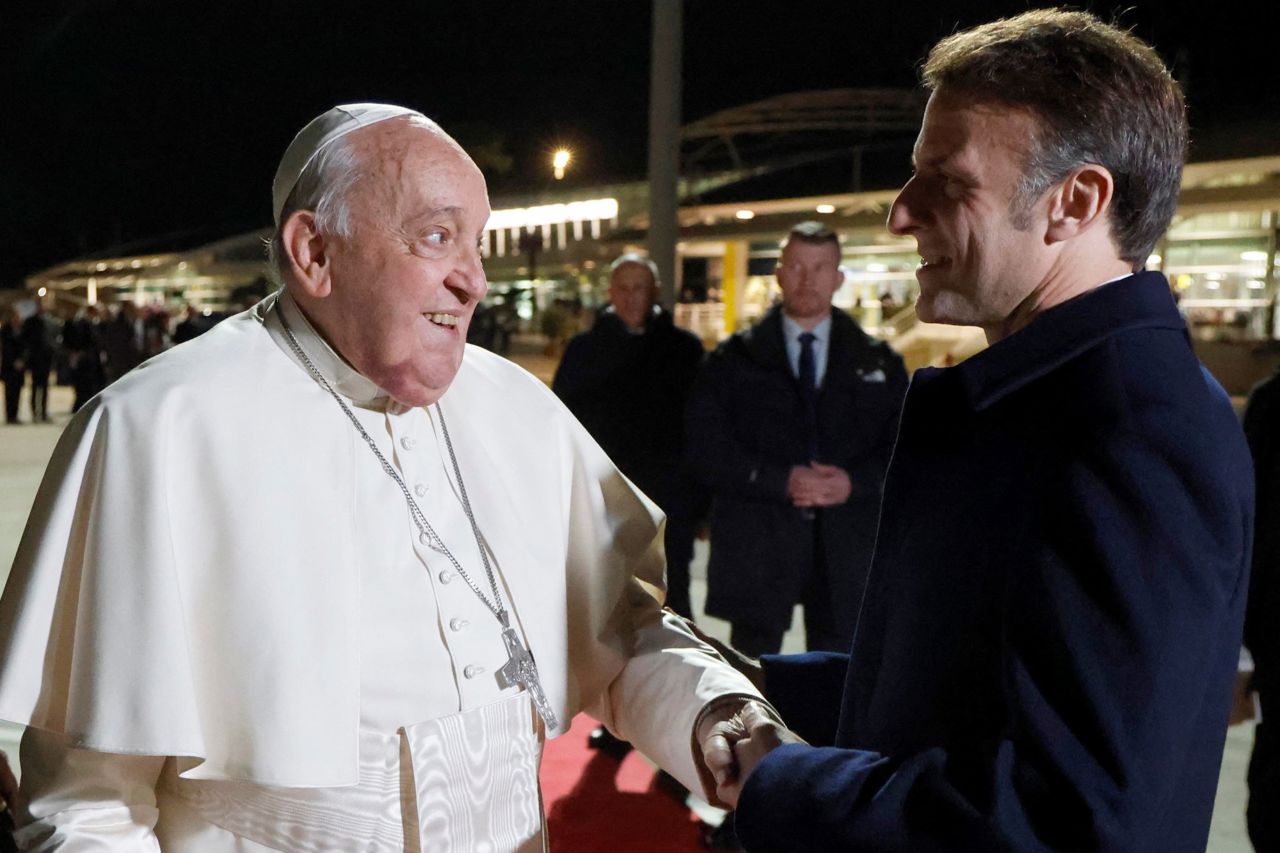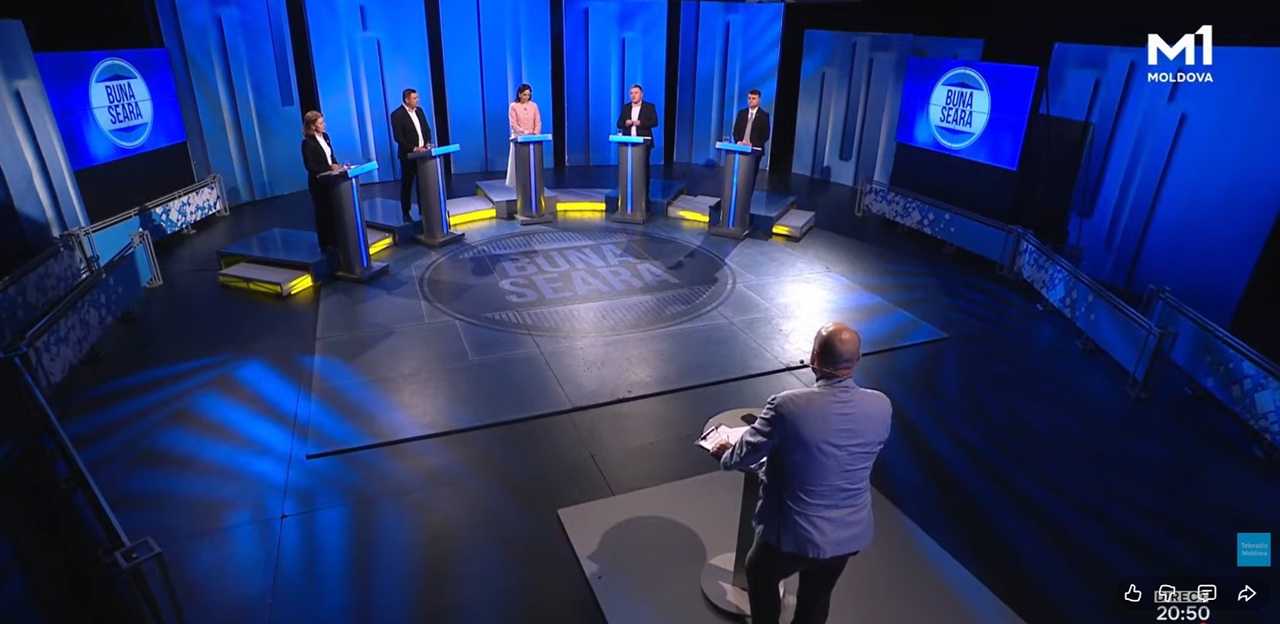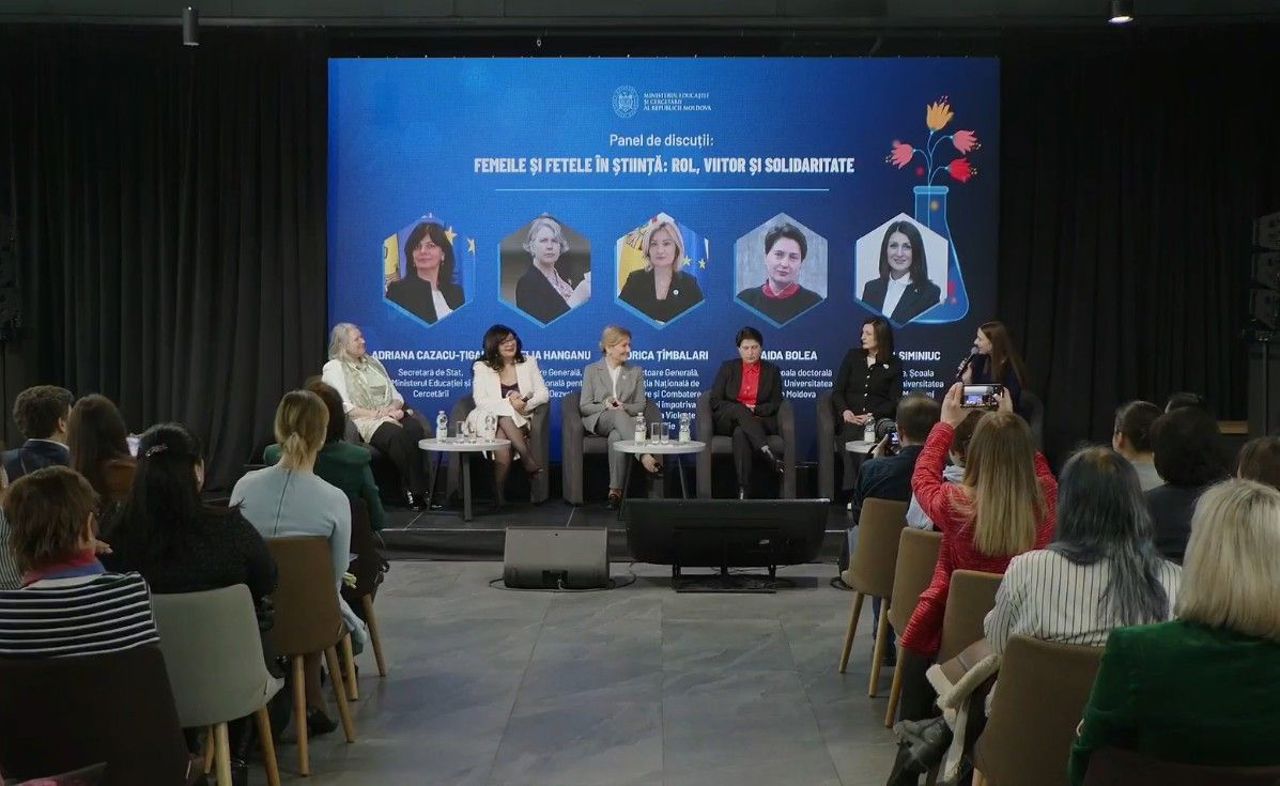Pope Francis calls for evolving secularism during Corsica visit
Pope Francis made an appeal on Sunday in Corsica, the French Mediterranean island, where he made a brief visit, calling for a form of secularism that is neither “static nor rigid,” before celebrating an open-air Mass and having a brief meeting with French President Emmanuel Macron.
The Pope’s positive remarks about secularism further signal that the Catholic Church, currently in crisis across Europe, is trying to define a path toward reform, according to Vatican News.
“Evviva u papa!”: During his “historic” visit to Corsica on Sunday, Pope Francis celebrated Mass before a huge crowd, during which he spoke about Ukraine and the Middle East, and, surprisingly, secularism, especially the French version of it.
A week after declining an invitation from Emmanuel Macron to attend the reopening of Notre-Dame Cathedral in Paris, the Pope chose this island with 350,000 residents, 80% of whom are Catholic. In Ajaccio, beneath the statue of Napoleon, the Pontiff praised a form of secularism that is not “static and rigid but rather evolving and dynamic.”
This statement seems to reference the fact that several European countries, including France, where secularism is enshrined in the constitution, have passed laws banning religious symbols in public spaces and educational institutions.
On this controversial topic in France, the Pope called for a secularism that would “promote ongoing cooperation between civil and ecclesiastical authorities for the good of the entire community, each remaining within its own competencies and space.”
Speaking at the conclusion of a congress on “popular religiosity in the Mediterranean,” the Pope also warned about the “risk” that “popular piety” might be exploited by groups attempting to strengthen their identity in a violent manner, fostering exclusionary attitudes. This message seems aimed at Corsican nationalists.
Among those targeted may be the far-right Corsican nationalist movement, Mossa Palatina, which claims that their island “will never be like Lampedusa” — the Italian island where migrants cross the Mediterranean Sea. This stance contrasts with the Pope’s, who advocates for the acceptance of migrants.
It is worth noting that just over two months ago, Pope Francis sparked controversy in Belgium. His visit there resulted in public backlash: hundreds of “de-baptisms,” where individuals renounced their Christian baptism, culminating in a summons for the papal nuncio to the Ministry of Foreign Affairs and a protest by the Prime Minister, who described the Pope’s statements as “completely unacceptable.”
This reaction occurred in the context of the Pope’s visit to Belgium, where he compared doctors who perform abortions to criminals and implied that women are essentially meant for reproduction (“woman is essentially fertile, a vital gift”), despite the fact that women still have limited access to leadership roles within the Church.
The Pope’s visit to Belgium sparked national outrage, occurring just days after the release of a report on sexual violence committed by priests. It seems the reform of Catholicism still has a long way to go.
Author: Dan Alexe
Translation by Iurie Tataru





